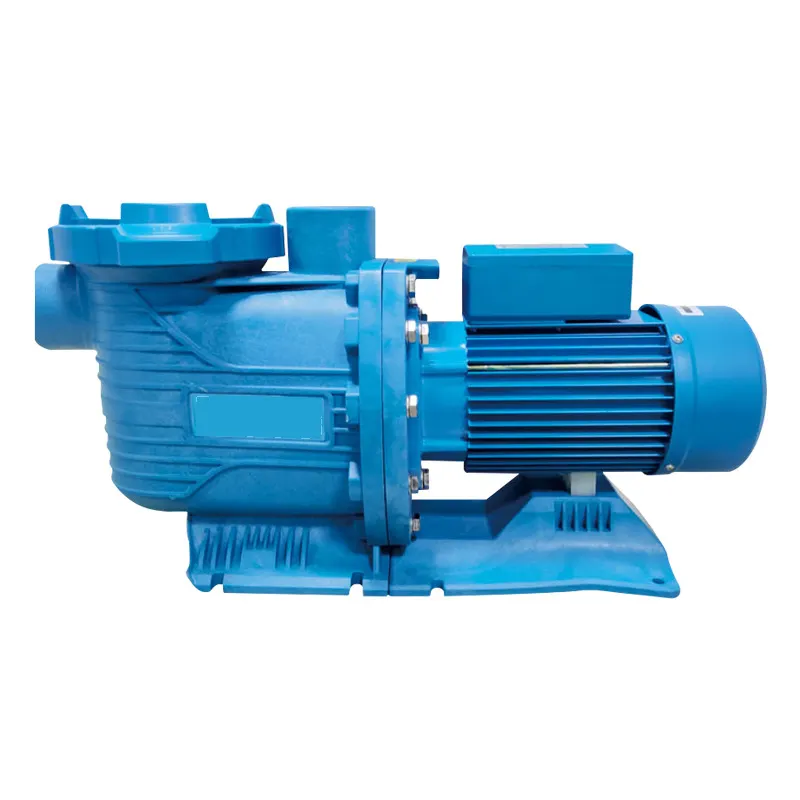Die Kies van die Regte Waterpomp vir u Projek
Die korrekte keuse waterpomp is krities vir die waarborg van optimale werkverrigting in beide residensiële en kommersiële toepassings. Of jy dit nodig het vir besproeiing, industriële operasies of noodgevalle soos vloedbeheer, kan 'n goed gekose waterpomp tyd, geld en energie spaar. Met 'n groot verskeidenheid tipes en spesifikasies beskikbaar, help die begrip van hoe elke pomp werk en sy ideale gebruiksaanwysing om duur foutiewe keuses te vermy.
Begrip van die Tipes Waterpompe
Sentrifugale Waterpompe
Sentrifugaalpompe is onder die mees algemeen gebruikte tipes in verskeie toepassings. Hierdie pompe werk deur rotasie-energie vanaf 'n motor om te skakel na energie in 'n bewegende vloeistof. Hulle is ideaal vir die oordrag van water in landbou-, munisipale- en industriële omgewings. Hul doeltreffendheid en vermoë om groot volumes hanteer, maak hulle 'n gewilde keuse.
Onderwaterpompe
Onderwaterpompe is ontwerp om onder water geplaas te word, wat hulle geskik maak vir die dreineer van oorstroomde kelders, putte of damme. Hulle is gesegel om te voorkom dat water die motor binnekom, wat duursaamheid verseker. Hierdie pompe is veral nuttig wanneer suigopvoer 'n probleem is.
Bepaling van u waterpompvereistes
Vloeitempo en Drukbehoeftes
Dit is noodsaaklik om die benodigde vloeitempo te verstaan. Gemeet in gallon per minuut (GPM), dui die vloeitempo aan hoe vinnig die waterpomp water kan beweeg. Byvoorbeeld, huislike besproeiing mag 'n matige vloeitempo vereis, terwyl industriële toepassings 'n baie hoër een mag benodig. Beoordeel ook die drukvereistes, veral as die water opwaarts of deur lang pype moet gepomp word.
Suigkop en Ontladingskop
Die suigkop is die vertikale afstand vanaf die watersbron na die pomp, en die ontladingskop is die vertikale afstand vanaf die pomp na die ontladingspunt. Hierdie metings help om die totale dinamiese kop (TDH) te bepaal, wat die effektiwiteit van die waterpomp beïnvloed. Deur hierdie parameters aan die pomp se vermoëns aan te pas, verseker dit betroubare werkverrigting.
Omgewings- en Vloeistof-oorwegings
Skuinswater teenoor Vuilwater
Nie alle waterpompe is gebou om dieselfde tipe vloeistof te hanteer nie. Sommige pompe is ontwerp vir skoon water, terwyl ander rommel en vastestowwe in afvalwater of vloedwater kan hanteer. Die regte waterpomp kies vir die tipe vloeistof beskerm die toerusting en verleng sy lewensduur.
Temperatuur en Chemiese Verenigbaarheid
As die toepassing behels die oordrag van warm of chemies-gelaai vloeistowwe, is dit noodsaaklik om 'n pomp van materiale wat daardie toestande kan weerstaan te kies. Vlekvrye staal of gespesialiseerde plastiek waterpompe mag meer gepas wees in sulke gevalle.
Energie Doeltreffendheid en Kragbron
Elektries vs. Brandstof-aangedrewe Pompe
Waterpompe kan deur elektrisiteit, petrol of diesel aangedryf word. Elektriese pompe is skoon en stil, wat hulle geskik maak vir binnegebruik of areas met gereedelektrisiteitstoegang. Brandstof-aangedrewe pompe bied meer mobiliteit en is ideaal vir afgeleë plekke sonder elektriese krag.
Energieverbruik Graderings
Wanneer u modelle vergelyk, kyk na die energieverbruikgraderings. Energie- doeltreffende waterpompe verminder nie net die omgewingsimpak nie, maar ook die bedryfskoste. Baie moderne pompe word gelever met energiebesparende kenmerke soos veranderlike spoed aandrywings wat die pomp se werkverrigting aanpas volgens die vraag.
Installasie en Onderhoud
Vernuftige installasie
'n Pomp wat maklik is om te installeer, kan arbeidskoste en afsluitingstyd bespaar. Sommige waterpompe word gelever met gebruikersvriendelike installasiekits, terwyl ander professionele opstelling mag vereis. Oorweeg die beskikbare ruimte en die kompleksiteit van die installasieproses wanneer u 'n besluit neem.
Onderhoud vereistes
Rutienonderhoud is noodsaaklik vir die lewensduur van enige waterpomp. Soek na modelle met maklik vervangbare onderdele en toeganklike dienspunte. Sommige pompe word gelever met toesighouende stelsels wat u waarsku wanneer onderhoud nodig is, wat help om onverwagte uitvalle te voorkom.
Begroting en langtermynwaarde
Aanvanklike koste teenoor bedryfskoste
Terwyl dit verleidelik kan wees om 'n goedkoper pomp te kies, oorweeg die langtermynkoste. 'n Hoër aanvanklike belegging in 'n kwaliteit waterspuit pomp lei dikwels tot minder herstelwerk, beter energie-effektiwiteit en 'n langer bedryfslewe.
Woorborg en Ondersteuning
Betroubare kliëntediens en waarborgdekking kan beslissende faktore in jou aankoop wees. 'n Goede waarborg bied ruste van gees en beskerming teen vervaardigingsfoute, terwyl reaktiewe diens verseker dat operasionele probleme vinnig opgelos word.
Toekomstige uitbreidbaarheid en gebruikgevalle
Aanpasbaarheid vir veelvuldige toepassings
Sommige waterpompe is veelsydig genoeg om in verskeie omgewings gebruik te word. 'n Pomp wat byvoorbeeld beide besproeiing en vloedbeheer kan hanteer, bied groter waarde. Deur 'n model met aanpasbare kenmerke te kies, word sy nut oor verskillende projekte heen vergroot.
Voorsiening vir toekomstige behoeftes
Dink vooruit oor hoe jou waterpompbehoeftes mag verander. Indien toekomstige projekte waarskynlik hoër kapasiteit of verskillende vloeistofsoorte sal vereis, belê in 'n model wat maklik uitgebrei of aangepas kan word.
FAQ
Watter grootte waterpomp het ek nodig?
Die grootte van die waterpomp wat jy benodig, hang af van jou vereiste vloeitempo en totale dinamiese kop. Meet die vertikale afstand en drukvereistes om die toepaslike pompgrootte te bereken.
Kan ek dieselfde waterpomp vir skoon en vuil water gebruik?
Dit word nie aanbeveel nie. Pompe vir skoon water is nie ontwerp om vastestowwe of rommel te hanteer nie. Die verkeerde tipe gebruik kan die pomp beskadig en sy lewensduur verkort.
Hoe gereeld moet 'n waterpomp onderhoud word?
Onderhoudsintervalle wissel per model, maar gewoonlik moet pompe elke 6 tot 12 maande geïnspekteer word. Raadpleeg die vervaardiger se riglyne vir spesifieke instandhoudingskedules.
Is 'n onderdompelbare waterpomp beter as 'n sentrifugale pomp?
Dit hang af van die toepassing. Gesinkte pompe is ideaal vir diep of ondergedompelde plekke, terwyl sentrifugaalpompe meer doeltreffend is vir oppervlakvlak-operasies.

